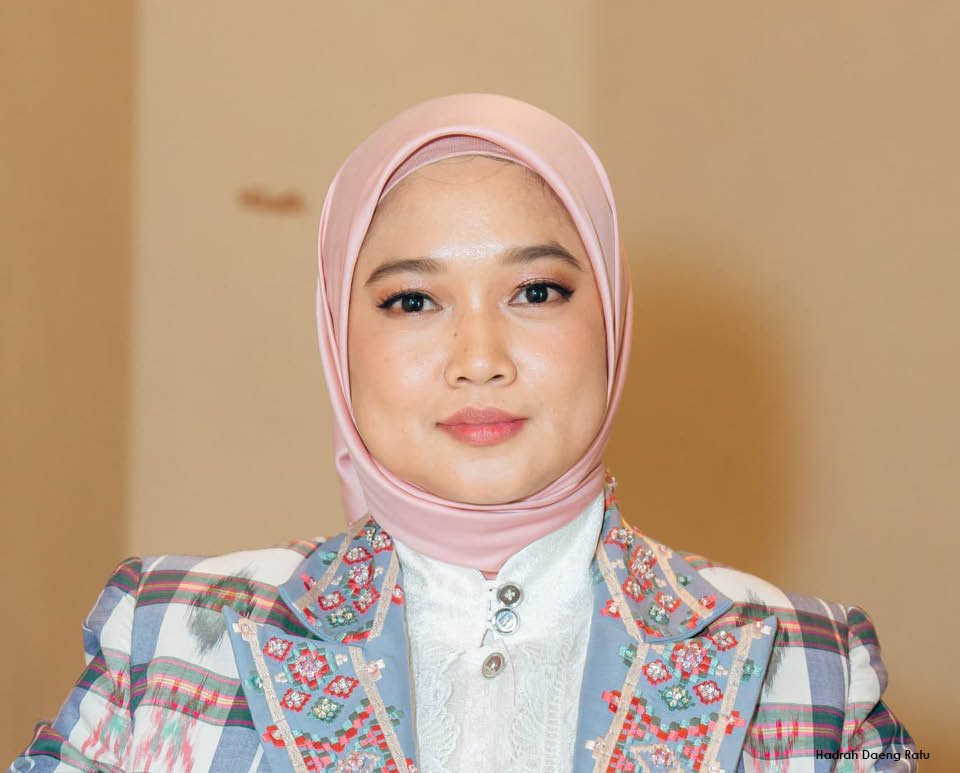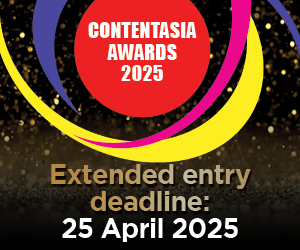
Indonesian series, "Cinta Pertama Ayah", talks about sexual violence, justice and support systems wrapped in a family story. James Moore spoke to Indonesian director, Hadrah Daeng Ratu, one of six nominees for Best Director in the ContentAsia Awards 2024, about her Sky Films’ miniseries for streaming platform, Vidio.
Sky Films’ Indonesian crime drama, "Cinta Pertama Ayah" ("Amara’s First Love"), is the story of Amara, whose perfect life is shattered on the night of her friend’s birthday when she survives a sexual attack. Her father, Darma, will do whatever it takes to ensure justice is served. Yasmin Napper stars as Amara opposite Teuku Rifnu Wikana ("Impetigore") as Darma. Rianti Cartwright plays her mother, Kemala, with Dwi Sasono and Ersa Mayori as Reza and Nabila, the parents of Stefan (Ahmad Al Ghazali) and Suzie (Chelsea Shania).
"Cinta Pertama Ayah" ran from January to March 2024 on Indonesia’s top streaming platform, Vidio, sparking lively debate over its portrayal of taboo topics, sensitive social issues and the high-emotion brought to local screens. Local reviewers talked about the power of the online community and social sanctions that kick in if the legal system fails, as well as the deep impact left on the entire family, including siblings – in this case a younger sister played by Nurra Datau – by traumatic situations.
Indonesian filmmaker, Hadrah Daeng Ratu, nominated for Best Director of a Scripted TV Programme for "Cinta Pertama Ayah" in this year’s ContentAsia Awards, talks about the eight-episode drama...
What inspired you to work on a project with such difficult themes? “We took our inspiration from the many cases of sexual harassment against young women that frequently occur in Indonesia. Many female victims do not dare to speak up and many rape cases are still often overlooked by authorities. This series dares to demand that justice must be upheld. Our story shows that the most important thing a victim needs is a strong support system from those closest to her. The story idea developed into a synopsis and scenario together with the producer and scriptwriter – and it kept evolving. Even during the workshop process with the actors, there wer...
Indonesian series, "Cinta Pertama Ayah", talks about sexual violence, justice and support systems wrapped in a family story. James Moore spoke to Indonesian director, Hadrah Daeng Ratu, one of six nominees for Best Director in the ContentAsia Awards 2024, about her Sky Films’ miniseries for streaming platform, Vidio.
Sky Films’ Indonesian crime drama, "Cinta Pertama Ayah" ("Amara’s First Love"), is the story of Amara, whose perfect life is shattered on the night of her friend’s birthday when she survives a sexual attack. Her father, Darma, will do whatever it takes to ensure justice is served. Yasmin Napper stars as Amara opposite Teuku Rifnu Wikana ("Impetigore") as Darma. Rianti Cartwright plays her mother, Kemala, with Dwi Sasono and Ersa Mayori as Reza and Nabila, the parents of Stefan (Ahmad Al Ghazali) and Suzie (Chelsea Shania).
"Cinta Pertama Ayah" ran from January to March 2024 on Indonesia’s top streaming platform, Vidio, sparking lively debate over its portrayal of taboo topics, sensitive social issues and the high-emotion brought to local screens. Local reviewers talked about the power of the online community and social sanctions that kick in if the legal system fails, as well as the deep impact left on the entire family, including siblings – in this case a younger sister played by Nurra Datau – by traumatic situations.
Indonesian filmmaker, Hadrah Daeng Ratu, nominated for Best Director of a Scripted TV Programme for "Cinta Pertama Ayah" in this year’s ContentAsia Awards, talks about the eight-episode drama...
What inspired you to work on a project with such difficult themes? “We took our inspiration from the many cases of sexual harassment against young women that frequently occur in Indonesia. Many female victims do not dare to speak up and many rape cases are still often overlooked by authorities. This series dares to demand that justice must be upheld. Our story shows that the most important thing a victim needs is a strong support system from those closest to her. The story idea developed into a synopsis and scenario together with the producer and scriptwriter – and it kept evolving. Even during the workshop process with the actors, there were intense discussions to strengthen the story further.”
"Cinta Pertama Ayah" was one of the most-watched series on Vidio when it launched. What do you think resonated most with audiences? “There could be many reasons. It could be the chemistry between the actors or because of the issues presented in the story. In the case of Cinta Pertama Ayah, I think the popularity was down to the story, the strong performances of the actors and the interesting visual concept.”
The project deals with many sensitive subjects – was this an obstacle to production? “The most challenging aspect was how to present a deep sense of trauma so that the audience could truly feel what a victim has experienced and understand how it affects entire families. It was important for us that the audience becomes more empathetic and aware. Thankfully, the results met our expectations as filmmakers. The acting performances of the father (Teuku Rifnu Wikana) and the child (Yasmin Napper) were really well received by the audience. There were many tears, and some were even swept away by the story.”
What kind of impact did it have locally in Indonesia? “Rape victims desperately need support from various parties to heal from their trauma and continue living. Wrong and unwise comments, as well as stigmas, can have fatal consequences for the victim and the victim’s family.”
How did you decide on the look and feel of the show, and what role did it play in telling the story? “From the very beginning of my involvement, the audiovisual concept came about naturally. The visuals have an intentionally intimidating feel, along with surreal elements, because we can never truly know how the victim feels and thinks. We tried to represent their emotions and how they relate to others and situations during the post-traumatic syndrome process. The technical choices that support these visuals – such as lens selection, colour tone, and even sound design – were all carefully considered in the film.”
What was the most rewarding part of working on this project? “It is important to show how crucial the development of a support system for rape victims is. Hopefully, if there is another opportunity to discuss this issue, I can delve deeper into the concept of “surviving” deep trauma and the process of “healing”. Everyone needs hope in their life.”



















